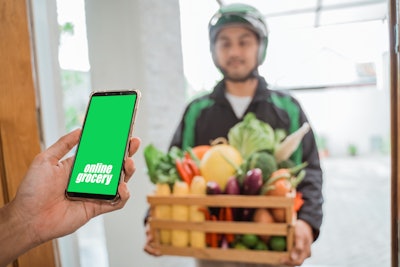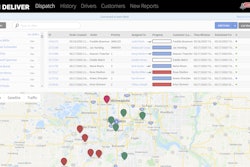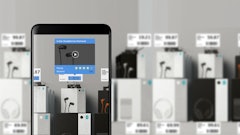
Online shopping has been on the rise for years, but it was the Coronavirus disease (COVID-19) that really forced businesses and consumers to jump on the bandwagon even more quickly than predicted.
It’s important to realize that this impressive growth can’t simply be attributed to more people getting comfortable shopping online. It’s happening at this scale because people are more comfortable with home delivery.
As the pandemic rages on and people stay at home for their health and safety, home delivery has become the only way consumers can shop. And, with every click, every purchase and every successful drop at their doorstep, they’re discovering just how convenient home delivery can be.
That’s why we’re seeing historic growth in perishables like groceries, meal kits and bottled beverages.
The pandemic has presented some of the biggest challenges of our time, but it has also spawned innovation in the world of e-commerce and transportation. Here’s what you can expect to see more of in 2021.
Home delivery volumes – especially in food and beverage – will continue to rise
Large carriers have experienced record volumes in the past year thanks to the boom sparked by COVID-19. We’re also seeing a rise in home deliveries carried out by local businesses who have brought their delivery logistics in-house. As small- and medium-sized businesses (SMBs) fulfill demand with their own delivery fleets, some delivery volumes have increased as much as 2.4 times in the last year alone.
The most significant growth stems from grocers, farms and food hubs; meal prep and meal kit companies; and businesses delivering bottled beverages like water, cold-pressed juices, wine and beer.
Consumers will continue to shop online, and have products delivered to their door
While COVID-19 helped consumers make the switch from in-person to online shopping, there is data to suggest that this new behavior is here to stay. New habits picked up during the COVID-19 pandemic will continue even after the pandemic is over, according to research from McKinsey.
Consumers discovering the convenience of home delivery are also likely to worry less about product quality and security as they gain more positive experiences, according to the Boston Consulting Group. And, as more retail stores are forced to shutter as a result of the pandemic, businesses of all kinds are being forced to reinvent themselves online or perish for good. The United States should take note of what’s happened in China -- even after the lockdown lifted, consumers did not rush back to physical stores. Instead, they kept up their online shopping and home delivery habits.
Everyone wants to support local
The campaign to support local businesses is picking up steam like never before, and the local food movement is riding that wave. Local food is experiencing a renaissance thanks to COVID-19, with local farms seeing a significant uptick in demand.
Unhindered by global supply chains, so-called farm-to-table or farm-to-door delivery services credit their commitment to sourcing local for keeping their businesses alive during the pandemic. The pandemic has shown how large, complex supply chains can be disrupted, leaving empty supermarket shelves, food wastage, the shutdown of processing plants and terminated exports. It has also highlighted the importance of establishing strong, local food systems with transparent supply chains, which provide a multitude of benefits to producers, suppliers and consumers.
Progressive food and beverage companies should take this opportunity to re-think the way they produce, distribute and eat food in order to help build a healthier and more sustainable world.
Customers are expecting more from the delivery experience
Did you know that 77% of consumers have a positive perception of businesses who text them important order information? Emails and SMS updates get the attention of customers because they want to know when their order will arrive and how they can best plan to receive it. They can organize a time to be home, give authority to leave the delivery at the door or organize re-delivery.
Notifications serve a number of purposes:
- They allow for a safe, clean and contactless home delivery experience.
- They are a customer expectation when it comes to home deliveries.
- They allow for the smooth and timely delivery of perishables like groceries.
- They create more opportunities for dialogue between businesses and their customers.
Giants have now set the standard for home delivery, with automated shipping and delivery notifications that come in over email or on the phone as a push notification. A system that offers a similar standard of communication is now essential for delivery companies of all shapes and sizes.
Technology is key to helping food businesses stay flexible and scale operations
Food businesses everywhere are getting creative when it comes to adapting their operations from retail to online and optimizing their logistics for home delivery. From ghost kitchens and micro-fulfillment centers, to transforming underutilized space into staging areas for home delivery packing and prep, food and beverage entrepreneurs are trying it all.
But, when it comes to adapting to increasing e-commerce demand, the biggest game changer is leveraging technology to have full visibility of your supply chain. Businesses must start by changing their mindset and their strategies to be an online-first operation. Then, leverage technology – whether it be physical tech in your store/warehouse or software in the cloud – to help automate and optimize every step of the food logistics supply chain.
Implementing technology doesn’t need to be an expensive or daunting task. Since the COVID-19 pandemic began, hundreds of food businesses have managed to pivot their operations within a week or two – setting up an online shop, carving out space in their facility to store and pack home delivery orders and then integrating dynamic routing technology to plan and execute on hundreds of home delivery orders.
The best kind of advice is to work backwards from the time of delivery. This approach ensures that you’re prioritizing punctuality, which is so important when delivering perishables to people’s homes.




















